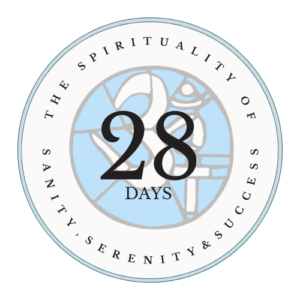This week Kriyabans from the Assisi Institute will share aspects of the spiritual life while Isha Das turns to other work on our behalf. Today’s passage comes from Mary McFee.
“Each of your habits creates a specific “groove” or pathway, in the brain. These patterns make you behave a certain way, often against your wish. But you can neutralize the dictates of bad habits. How? By creating brain patterns of opposite good habits. And you can completely erase the grooves of bad habits by meditation. There is no other way.” Paramahansa Yogananda
Last week, Isha Das wrote about the narrow gate and how we need to drop our attitudes and attachments in order to make space for the Divine. I would add that for me, I can never make it through the narrow gate if I am in a hurry. As an introverted young person who came from an “always late” and naturally slow-moving family, I was often the last to arrive, the last to turn in a paper, and the last to understand a new concept. To compensate, I made hurrying a habit that hurts even as it seems to help. So, I took great delight in the discovery of a story from Yogananda’s early days in Sri Yukteswar’s ashram. Yogananda writes that as he and his guru meditated in the evening, he would grow mentally restless as he worried that he would miss the train back to Calcutta. The more restless he grew, the later Sri Yukteswar would keep him, and the faster he would have to run to the train station. He writes, “As I discovered that my worry about train schedules was not influencing Master, I made it a point to banish the restless feelings that had previously been disturbing me. My Guru immediately began to dismiss me in ample time to catch my train.”
Yogananda’s feeling of restlessness in this story was oh-so-familiar. After a lifetime of trying to keep up by hurrying, I often feel that I am late, whether I am or not. Yet Yogananda gives me the key: First, I must literally practice the opposite good habit, which I can only do if I pay attention to myself. I remind myself constantly, walk more slowly. Type and text more slowly. It’s ok to avoid the expressway and heavy traffic. Be less attached to my daily to-do list. Admit when I need more time and ask others for it if necessary. At the end of the day, I can ask myself not how much I got done, but how much I hurried and felt frazzled. More importantly, Yogananda tells me that God can and will actually fill in the well-worn grooves of this habitual behavior if I allow God to work in me during meditation. He writes so eloquently and memorably, “God begins where motion ceases.”
Guruji,
You love me eternally,
But you will not run
After the speeding train
Of this mind and body.






